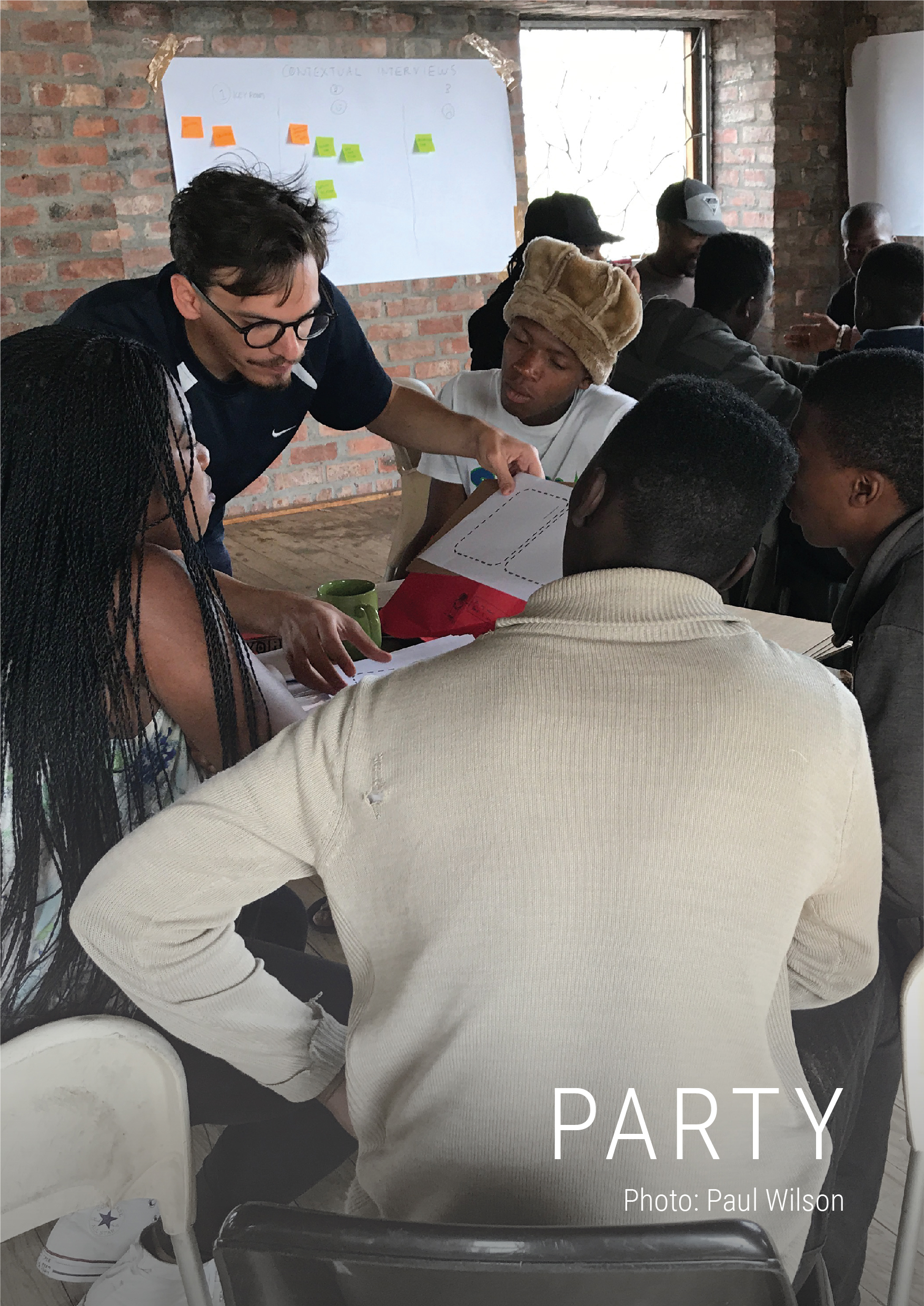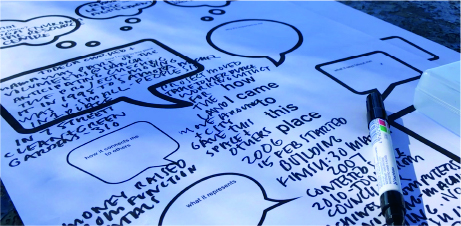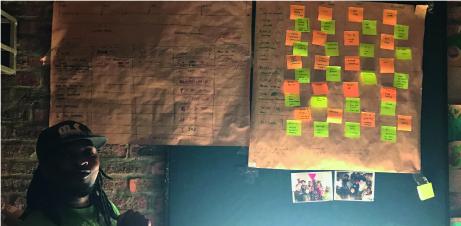

UNITED KINGDOM
PARTY PROJECT
PARTY (Participatory Development with the Youth) looked to address the needs of marginalised San youth in South Africa and Namibia, using arts- and design-based methods to develop innovative service solutions, educational tools and support and addressing issues of self-esteem. Funded by the European Union, PARTY assembled a team of academics, designers, local NGOs and grass-roots community activists and carried out a series of activities over four years (2015-2019).
THE PROJECT
WHO?
Participants: Key project stakeholders were determined by the local contexts, primarily San youth and community members, community organisations and activists, as well as participation which was dependent upon the development of relationships with key gatekeepers within the local context.
Trainers: Trainers were researchers or service designers working on the project, from one of the project partner organisations.
Partner institutions, stakeholders: Ubunthubethu – local community organisation in South Africa, Cape Peninsula University of Technology, University of Cape Town - again both in the South African context.
WHERE?
Work took place in locations in both South Africa (Platfontein, Upington) and Namibia (Windhoek) - both within the communities of the San and also in conjunction with local NGOs whose premises were sometimes used to facilitate more complex activities (the !Khwa ttu San Culture and Education Centre). Other activities were able to occur alongside the work with the San, where PARTY researchers connected to networks of community activists (in the township of Samora Machel near Cape Town, for example).
WHEN?
Between 2015 and 2019, specifically - workshops would usually last between 1 and 3 days, although the nature of the mobility for PARTY researchers (up to 1 month usually, and sometimes longer) meant that it was possible for activities to be connected and developed over a longer period of time (in some cases 3-6 months).
WHY?
The San people have historically been subject to exclusion and marginalisation and communities continue to suffer from a lack of access to key services including employment and education. Unemployment in the communities and, in particular, in youth and young adults (13-24 years of age) is particularly high, resulting in a lack of social inclusion and opportunities for their future success, alongside the ongoing challenges of living in marginalised conditions.
WHAT?
A range of workshop approaches led to varied outputs, including creative responses to the challenges faced in the youth's local context (storytelling, dance and performance) as well as new service concepts which addressed local needs together with tangible outputs which were beneficial to participants themselves (educational presentations, CV documents). The project resulted in a range of design and academic-related publications such as exhibitions, methods handbook, conference coordination and digital dissemination activity.
HOW?
Workshops were developed to cover key project aims and were reliant upon locally-sourced or found materials which would be easily reproducible and deliberately low-fi in order to encourage a grass-roots and open approach, and often made use of service design tools and techniques such as visualisation and ideation.
IMPACTS
Participants were engaged in experiences which helped to develop their knowledge and experience of key methods and skills, and which supported their understanding of challenges around inclusion and social cohesion, their potential agency in terms of local democracy, indigenous rights and the benefits of multidisciplinary collaboration.
MY STORY TO THIS PLACE
PROJECT | PARTY
COUNTRY | UNITED KINGDOM
COMMUNITIES OF PLACE
PROJECT | PARTY
COUNTRY | UNITED KINGDOM
OUR FUTURE NEWS
PROJECT | PARTY
COUNTRY | UNITED KINGDOM



